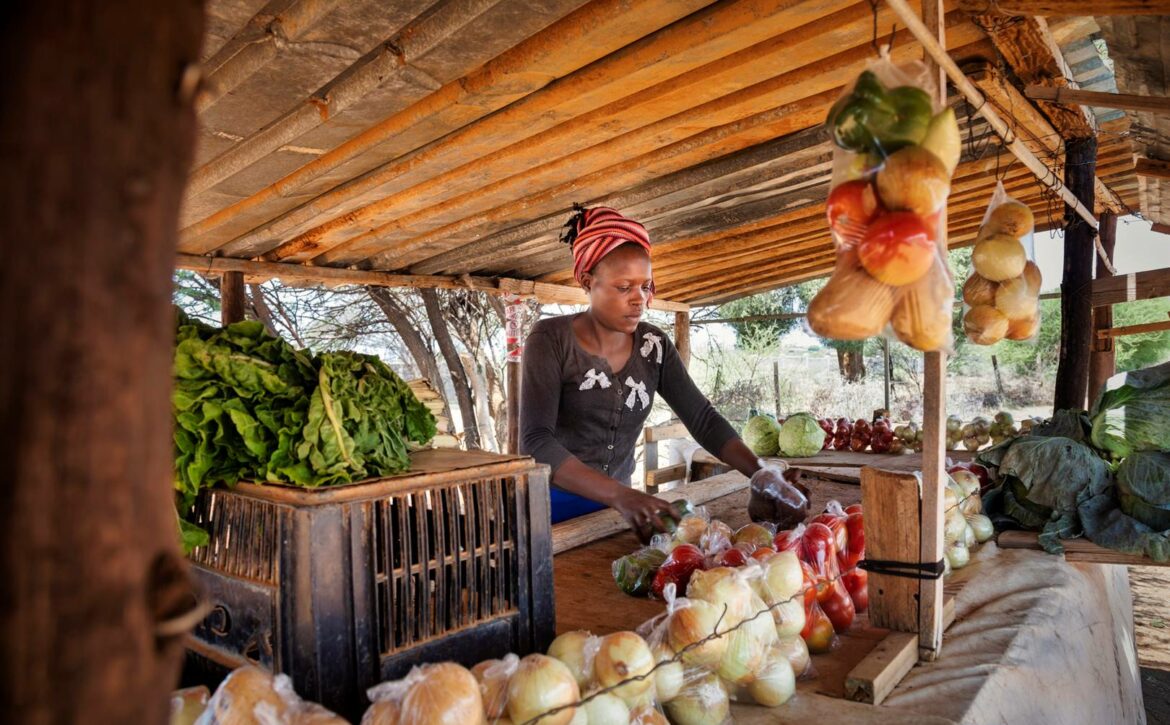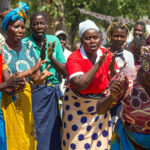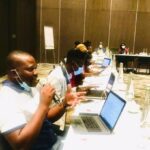Women in the informal Economy Key Discussion

Introduction
When news about the COVID-19 first broke in December 2019, many countries in the world particularly, African countries did not give it much thought because of the fact that the first cases were recorded in Wuhan China. Which was far away from the shores of the African continent for many this was going to be a virus that would come and go just as many others such the first Severe Acute Respiratory condition (SARs) fever that broke out in the past. Covid-19 as a news item got very little attention and if at all, anything about it was reported it would be a very small component in our foreign news segment. In January 2020 the world health organization WHO declared the COVID- 19 a global health emergency because at this point, the covid-19 infection rate was on the sharp rise and this meant that countries across the globe would have to brace themselves for an unprecedentedly devastating global pandemic yet.
The first two cases of the covid-19 in Zambia were first reported on 18th March 2020, this was just but the beginning of a long hard fight against a pandemic that would bring the whole globe to a standstill and nothing would prepare the country for what was going happen. The pandemic has had adverse effects not only on the health sector of the country but also on the socio-economic sector of the country. With western countries such as the United States of America and United Kingdom putting in interventions such as total lock downs coupled with the Covid-19 preventive protocols, African countries such as Zambia were not only trying to come to terms with this harsh reality about the existence but the government hard to deal with the following challenges;
- A good number of people, many in the middle to low income bracket believed that covid-19 was a virus that only affected white people and so not much seriousness attached to it and this consequently led to failure of adhering to the prevention guidelines.
- The other challenge the government faced was whether to impose a lock down in order to protect the wide spread of covid-19 but this on the other hand meant people would face a bigger problem of starvation. Owing to the fact that majority of the population are in the informal economy and about over 50% are women who live from hand to mouth and have dependents to take care of. Imposing a lock down was going to be more disastrous than the pandemic so government put in place such as wearing masks, washing hands frequently, observing social distancing in a bid to control the spread of the virus but also allow people to go out and conduct business under the new normal.
- The closure of public places like restaurants, bars, schools and the ban of social gatherings such as weddings and parties, was yet another move that had an adverse effect on the Small Medium Enterprises (SME’s) who would cash in on these events, this consequently led to close of business and loss of jobs for many especially the youth.
- There was a sharp rise in mental health issues in many people who could not deal with the fact that they either lost a job or closed business and so there was need to address this issue as quickly as possible. The media has been in the forefront to address the issue that has come because of covid-19.
- The closure of borders and the imposition of travel bans was yet another challenge that came as a result of the covid-19, this had an effect on the cross borders who used to travel to places like south Africa to buy goods for resell and on the other hand commodity prices increased due to low supply. The closure of borders further crumbled the economy because there was no longer an influx of tourists in the country, which then meant that there was going to be a shortage of the much-needed foreign exchange. To curb this government through the ministry of tourism working with different media houses has been encouraging the locals to visit tourists’ sights as a way of boosting the tourism sector.
- While places like the United States of America and other European countries have been able to vaccinate almost 90% of their population, countries such as Zambia have had to deal with the fact that many people have refused to take the vaccine citing various reason. That include the western world’s plot to wipe out the black race and many other conspiracy theories, still others have blatantly refused to be vaccinated. As far as they know covid-19 does not exist and so this has made it extremely difficult for the government to reach its target of vaccinating over 30% of the targeted 8,000,000 by December 2021, as it stands only 5% of that number have been vaccinated.
Opportunities
As much as the covid-19 has had a serious effect on the health and socio-economic status of the country, it also has presented many people with opportunities to be able to think outside the box by coming up with innovative ways of doing business such as the following;
- With government making wearing masks during the pandemic mandatory, many women started making cloth masks for resell to individuals and institutions.
- Many companies and individuals had to start manufacturing sanitizers and hygiene products to help champion hand washing, which ultimately led to job creation for some.
- Business owners started to make use of the digital space to be able to sell their goods and services.
- With a lot of public places such as restaurants and bars being closed, we, saw the birth of courier services in Zambia like never before.
- The other positive that has come as a result of the pandemic is that we have seen a multi-sectoral approach in the fight against the covid-19. There has never been a time when different stakeholders have together as much as they have come out to fight covid-19.
- Government together and other civil society organization have been able to give covid-19 relief to families most affected, though many say they have not received this relief support.
- The government has been on top of things through the Ministry of Health in ensuring that the country is updated on the evolution of the covid-19 in the country.
The Role of the media.
As the cases of the covid-19 across the globe escalated, with the death toll in Europe, America and South Africa which happens to be very close to Zambia began to sky- rocket there was need for the media to position itself as a key stakeholder in the fight against covid-19 by ensuring that we did the following;
- Cover stories of how covid-19 was evolving either at home or abroad.
- Keep the nation abreast with the information about covid-19 as received by the ministry of health.
- Ensure that we are present at every media briefing by the ministry of health and other stakeholders so that we can effectively disseminate information to the public.
- We have done our best to ensure that we cover stories about government and other non-governmental organizations efforts to offer relief to the most affected families.
- We have also been able to cover stories of people who have been worst hit by the pandemic economically, with the hope of getting the policy makers attention and in the end hope; we can be able to see these people receive the much-needed support.
- Working with the government of the republic of Zambia through the ministry of Health along with other stakeholders such as the Zambian National Public Institute (ZNPHI), Centre for Disease Control CDC Zambia. The media has taken a leading role in informing the public on first the existence of COVID-19. The dangers of it and how to prevent possible exposure by interviewing different experts in the medical field to come and talk about the seriousness of covid-19, how far they have come with the discovery of a cure or vaccine. This has yielded some results because many people will believe a Doctor or medical practitioner seeing that they are qualified to speak on the subject.
- Among many other interventions we have come up with deliberate programs such as the breakfast shows were, we give the covid-19 daily status update as we receive them from the ministry of health, this is because of the fact that when people hear about something consistently it begins to sink in and becomes a part of them. In doing, this we hope that the public will in the end acknowledge and accept the fact that covid-19 is real. That the vaccine has potential to protect them and their loved one from possible risk of infection and that the vaccine is a huge step in the right direction to economic recovery.
Summary
The COVID-19 global pandemic has had such a negative impact on nations across the globe, despite the fact that most African countries have not experienced very large numbers. In terms of infection and mortality. African countries such as Zambia have been hit economically because of its geographical position of being a landlocked country. Zambia depends on other countries for imports and the covid-19 has put pressure on the country’s economy. As the world has started to open up, the media becomes key in ensuring that the public is kept abreast with what government policies being put in place to foster economic recovery on the other hand. The media has to position itself to reporting more on issues that affect the public in order to help government make policies that will result in the restoration and recovery of the economy.









